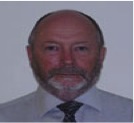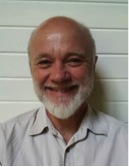APS College of Forensic Psychologists
Keynote presenters
Mr Keith Hamburger AM
 Keith was Queensland’s Director General of Corrective Services for 9 years where he led major successful reform of the Queensland Prison System. At the conclusion of Keith’s stewardship, Queensland had the most cost-effective system of Corrections in Australia, including the lowest return to prison rate. Since 1997 Keith has undertaken a number of significant reviews of corrections in most Australian Jurisdictions. During 2016, he led a review of Northern Territory Correctional Services that identified many shortcomings including in Juvenile detention. He subsequently appeared as a witness before the Royal Commission into the Protection and Detention of Children in the Northern Territory and also participated in a ‘round table’ seminar of experts convened by the Commissioners to advise on best practice initiatives.
Keith was Queensland’s Director General of Corrective Services for 9 years where he led major successful reform of the Queensland Prison System. At the conclusion of Keith’s stewardship, Queensland had the most cost-effective system of Corrections in Australia, including the lowest return to prison rate. Since 1997 Keith has undertaken a number of significant reviews of corrections in most Australian Jurisdictions. During 2016, he led a review of Northern Territory Correctional Services that identified many shortcomings including in Juvenile detention. He subsequently appeared as a witness before the Royal Commission into the Protection and Detention of Children in the Northern Territory and also participated in a ‘round table’ seminar of experts convened by the Commissioners to advise on best practice initiatives.
For many years, Keith has worked with First Nation people to seek initiatives to reduce their gross over-representation in prisons. During 2016, he established Holistic Justice and Community Services Pty Ltd a company committed to facilitating empowerment of First Nation people to resolve the awful circumstances faced by their communities that drive social breakdown and crime.
Keynote "Review of Northern Territory juvenile detention services and implications for Australian Youth Justice systems"
This presentation will provide a background to the 2016 review of juvenile detention facilities in the Northern Territory. It will highlight key recommendations of the review team, and discuss implications for juvenile justice facilities in general. Future models for the management and care of First Nations youth and adults in detention will also be presented, with a focus on engaging and empowering communities, holistic responses to family and community circumstances, a changed role for community corrections, decentralisation, and through-care. A case study will be presented covering a unique approach being progressed in some Queensland First Nation communities.
Prof Andrew Day
 Andrew Day is Professor and Head of Research Development at the Australian Aboriginal and Torres Strait Islander Centre at James Cook University in Queensland. Before joining academia he was employed as a clinical psychologist in South Australia and the UK, having gained his Doctorate in Clinical Psychology from the University of Birmingham and his Masters in Applied Criminological Psychology from the University of London. He is widely published in many areas of forensic psychology, with a focus on the development of effective and evidence based approaches to offender rehabilitation.
Andrew Day is Professor and Head of Research Development at the Australian Aboriginal and Torres Strait Islander Centre at James Cook University in Queensland. Before joining academia he was employed as a clinical psychologist in South Australia and the UK, having gained his Doctorate in Clinical Psychology from the University of Birmingham and his Masters in Applied Criminological Psychology from the University of London. He is widely published in many areas of forensic psychology, with a focus on the development of effective and evidence based approaches to offender rehabilitation.
Keynote "Forensic psychology practice with Aboriginal and Torre Strait Islander offenders and communities: Enhancing justice?
This presentation will discuss current issues in forensic practice with offenders who identify as from Aboriginal and Torres Strait Islander communities. It will consider, from a non-Indigenous perspective, some of the barriers that arise when trying to engage Aboriginal and Torres Strait Islander offenders and consider cultural issues that arise when assessing risk, in conceptualising treatment need, and in program delivery. Suggestions for the development of more effective services are proposed.
Dr Melisa Wood
Dr Melisa Wood is a Senior Clinical and Forensic Psychologist at the Problem Behaviour Program, Victorian Institute of Forensic Mental Health (Forensicare) and an Adjunct Teaching Fellow for the Centre for Forensic Behavioural Science at Swinburne University of Technology. Dr Wood’s research and clinical interests lie in understanding, assessing and managing complex criminal behaviours including family violence, stalking and sexual offending, and in understanding the complex relationships between violent offending and mental illness and personality disorder. Dr Wood has published peer-reviewed articles, book chapters and international conference presentations on the subjects of family violence, sexual offending and psychopathy, and delivers training workshops on violence risk assessment and management to audiences in varied organisational settings, including mental health services, law enforcement and correctional staff. Dr Wood is experienced in working with both victims and perpetrators of family violence, with a focus on risk assessment and risk management. She works closely with Victoria Police Family Violence Command toward improving police practices in managing family violence cases, and provides expert consultation and advice to local police family violence teams in relation to assessing and managing risk in family violence cases.
Keynote "Understanding, assessing and treating violence within families: Current evidence and clinical application"
Since the 1970s there has been increasing recognition of family violence, and in particular intimate partner violence, as a serious social, legal and behavioural problem. In the past decade, significant attention has been given to this issue both nationally and internationally, and substantial investments have been made across law enforcement, public and legal policy, research, and clinical practice, toward prevention and intervention practices. Despite these advancements, there remains considerable controversy in the field between competing theoretical models that purport to explain the phenomenon of violence within families, and the state of the scientific evidence for “what works” in assessing, treating, and preventing family violence remains contested. In this keynote, Dr Wood will provide an overview of current research and practice in the field of family violence in Australia and internationally. She will then draw on the empirical research literature and her clinical experience to consider a sensible, evidence-based conceptual framework for understanding the family violence situation and its potential causal mechanisms, and discuss best-practice approaches for the assessment, treatment and management of risk in family violence cases.
Dr Cathy Kezelman AM
 Dr. Cathy Kezelman AM is a medical practitioner, mental health consumer advocate, President of Blue Knot Foundation, member of the Mental Health Community Advisory Council (NSW and member of the Commonwealth Redress Advisory Council. Under her stewardship Blue Knot Foundation has grown from a peer support organisation to a leading national organisation combining a prominent consumer voice with that of researchers, academics and clinicians advocating for socio-political change and informed responsiveness to complex trauma. She is a prominent voice in the media and at conferences, as well as author of a memoir chronicling her journey of recovery from child sexual abuse: Innocence Revisited- a tale in parts. On Australia Day 2015, Cathy was awarded as a Member of the Order of Australia (AM) "for significant service to community health as a supporter and advocate for survivors of child abuse". She is co-author of the Blue Knot Foundation documents Practice Guidelines for Treatment of Complex trauma and Trauma Informed Care and Service Delivery, The Cost of Unresolved Childhood Trauma and Abuse in Adults in Australia and Trauma and the Law: Applying trauma informed practice to legal and judicial contexts.
Dr. Cathy Kezelman AM is a medical practitioner, mental health consumer advocate, President of Blue Knot Foundation, member of the Mental Health Community Advisory Council (NSW and member of the Commonwealth Redress Advisory Council. Under her stewardship Blue Knot Foundation has grown from a peer support organisation to a leading national organisation combining a prominent consumer voice with that of researchers, academics and clinicians advocating for socio-political change and informed responsiveness to complex trauma. She is a prominent voice in the media and at conferences, as well as author of a memoir chronicling her journey of recovery from child sexual abuse: Innocence Revisited- a tale in parts. On Australia Day 2015, Cathy was awarded as a Member of the Order of Australia (AM) "for significant service to community health as a supporter and advocate for survivors of child abuse". She is co-author of the Blue Knot Foundation documents Practice Guidelines for Treatment of Complex trauma and Trauma Informed Care and Service Delivery, The Cost of Unresolved Childhood Trauma and Abuse in Adults in Australia and Trauma and the Law: Applying trauma informed practice to legal and judicial contexts.
Keynote "Institutional responses to child abuse and complex trauma"
The Australian Royal Commission into Institutional Responses to Child Sexual Abuse was a global first in terms of its scope and powers. As we await its final report this presentation will reflect on the factors which led to the Royal Commission and consider what has been revealed about child sexual abuse within institutions, many of which are mainstream. While the sheer presence of the Commission has fostered a much-needed national conversation about institutional child sexual abuse and its effects what will its legacy be in terms of measurable long-term changes in child safety, legislation, reporting, justice, accountability and victim support? Although broad the Royal Commission’s terms of reference were restricted to sexual abuse in Australian institutions. Yet childhood trauma is a much broader public health issue, the prevalence, types, effects, and societal costs of which extend far beyond that of child sexual abuse in institutions. By conservative estimates one in four – around 5 million – adult Australians have suffered diverse childhood traumas, including those experienced within the home, family and neighbourhood. Confronting, acknowledging and addressing the stigma, taboo and impacts of other forms of abuse and neglect, including family and community violence, is the next frontier. This presentation asks us all to reflect on how we can build on the legacy of the Royal Commission to better address the needs of Australians impacted by complex, multiple and compounded childhood traumas.
Dr Malcolm Frost
 Dr Malcolm Frost is a Forensic and Clinical Psychologist who has spent a large portion of his career working with violent offenders and victims of interpersonal violence in remote and very remote Aboriginal communities. He currently works in private practice in regional far north Queensland.
Dr Malcolm Frost is a Forensic and Clinical Psychologist who has spent a large portion of his career working with violent offenders and victims of interpersonal violence in remote and very remote Aboriginal communities. He currently works in private practice in regional far north Queensland.
Keynote "Psychologists working in the Central Desert"
Australia is one of the most urbanised countries in the world with the majority of its population living on the coastal fringes. To most, Central Australia and its people are foreign and unknown beyond regular reports of dysfunction and disadvantage. There have recently been some welcome but modest gains in ‘closing the gap’ predominantly due to an increase in medical interventions reducing child mortality. Despite these efforts, many of the problems among remote Aboriginal people are impervious to medical intervention. These include high rates of psychological disorders, violence, drug and alcohol abuse, imprisonment, suicide, intra and inter-cultural conflict, unemployment and general socioeconomic disadvantage. The causes, consequences and remedies are the domain of allied health professionals of which psychologists are represented in small numbers. The topic will draw upon the authors experience and interviews with six non-Aboriginal psychologists who worked in remote and very remote Central Australia. The complexity of the work, the profound inadequacy of training, the isolation and lack of useful supervision, the effect on their health and relationships along with the joys and rewards of working in this fascinating place will be discussed. A model for training and supervision will be proposed.



